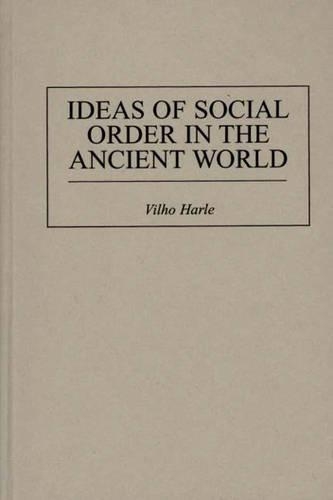
Ideas of Social Order in the Ancient World
(Hardback)
Publishing Details
Ideas of Social Order in the Ancient World
By (Author) Vilho Harle
Bloomsbury Publishing PLC
Praeger Publishers Inc
25th March 1998
United States
Classifications
Tertiary Education
Non Fiction
General and world history
Ancient history
Peace studies and conflict resolution
303.3093
Physical Properties
Hardback
272
Description
Harle focuses on the perennial issue of social order by providing a comparative analysis of ideas on social order in the classical Chinese political philosophy, the Indian epic and political literature, Zoroastrianism, Judaism, the classical Greek and Roman political thought, and early Christianity. His analysis is based on the religious, political and literary texts that represent their respective civilizations as both their major achievements and sources of shared values. Harle maintains that two major approaches to establishing and maintaining social order exist in all levels and types of social relations: moral principles and political power. According to the principle-oriented approaches, social order will prevail if and when people follow strict moral principles. According to the contending power-oriented approach, orderly relations can only be based on the application of power by the ruler over the ruled. The principle-oriented approaches introduce a comprehensive civil society of individuals; the power-oriented approaches give major roles to the city-state, its government and relationships between them. The question of morality can be recognized also within the power-oriented approaches which either submit politics to morality or maintain that politics must be taken as nothing else than politics.
Reviews
"A book of this sort has been long overdue. Professor Harle's work provides the most erudite foundation for a revision of Euro-centric and mono-cultural notions of international order that I have yet read." Stephen Chan. Dean of Humanities. The Nottingham Trent University - "Vilho Harle possesses the kind of moral sensibility and intellectual ability that is all too rare in academia, especially in his field of international studies. In this book, Dr. Harle displays a deep, comparattive command of the principal ideas and values across a number of civilizations and the capacity to discover humanity's 'common cultural heritage' in which lies the possibility for global peace and inter-civilization decency." Shiraz Dossa. Professor of Political Science. St. Francis Xavier University. Nova Scotia, Canada
Author Bio
VILHO HARLE is Professor of Intrernational Relations at University of Lapland in Finland. He was a Visiting Fellow at the Center for International Studies, the London School of Economics in 1996-1997. He has published and edited more than ten books and journal issues as well as a number of articles in scientific journals.
